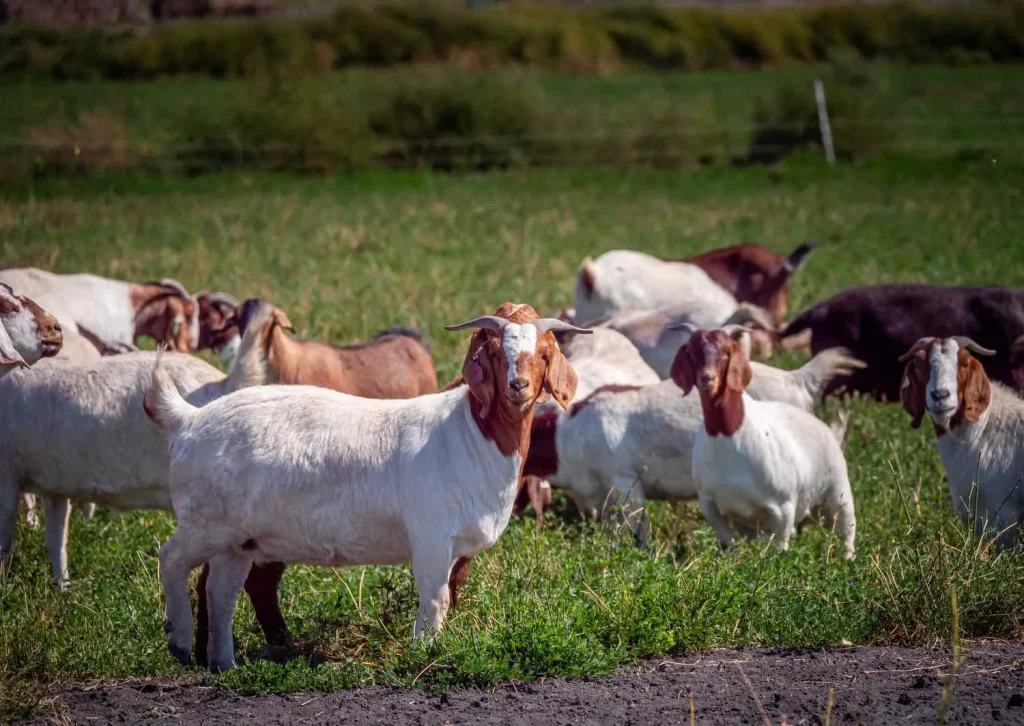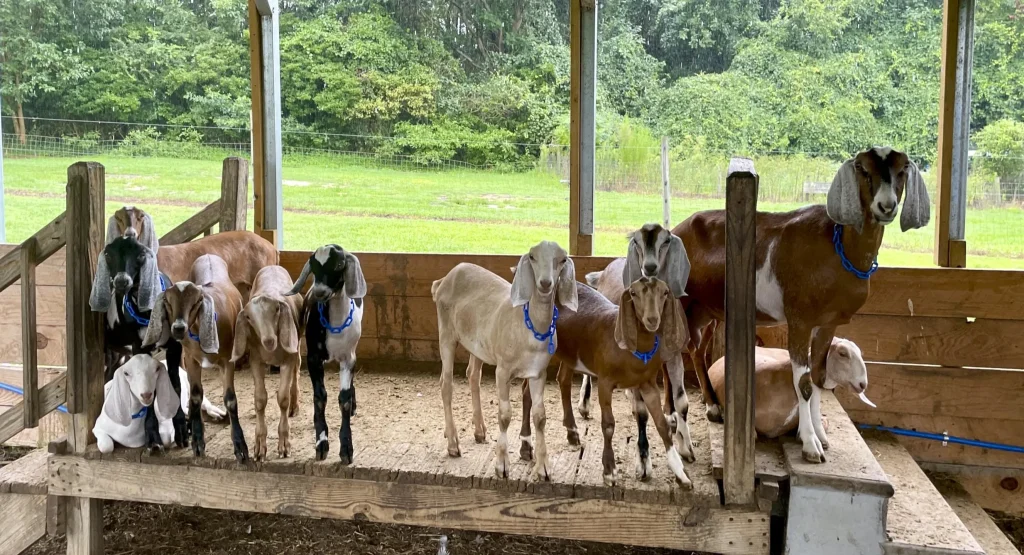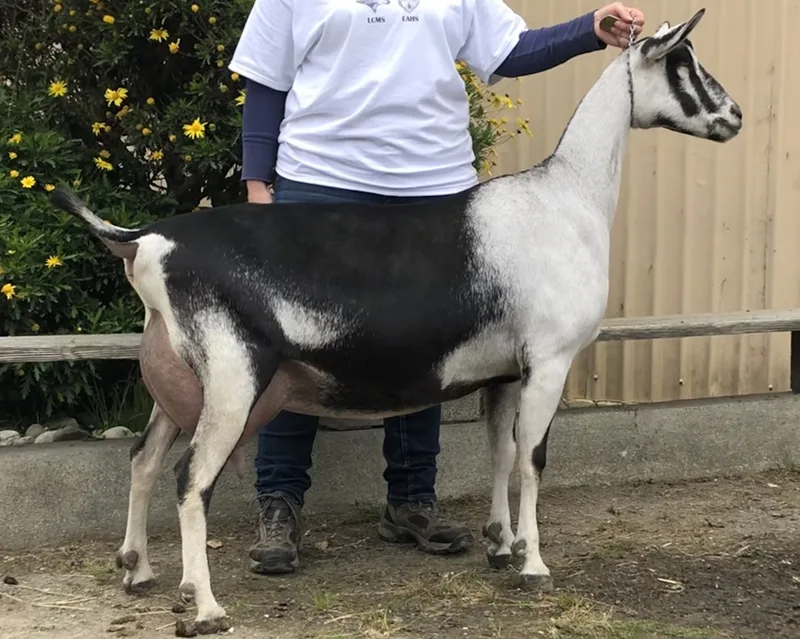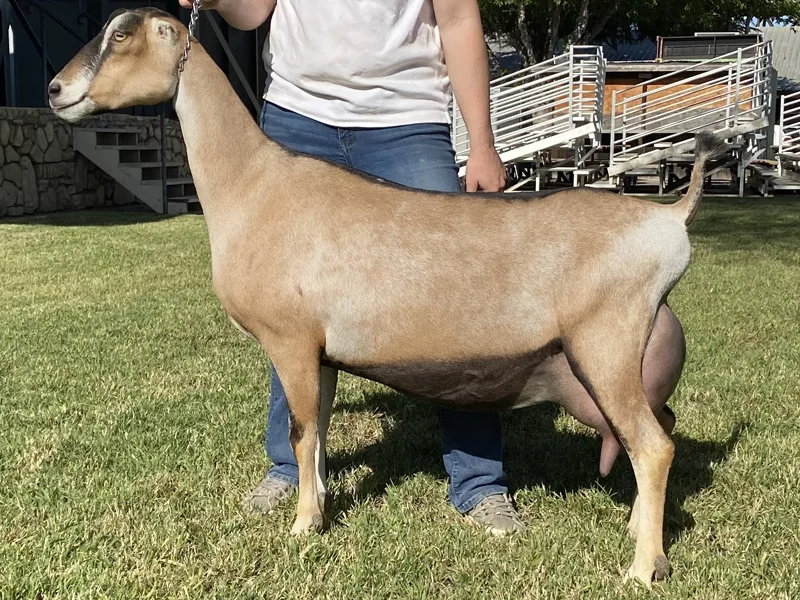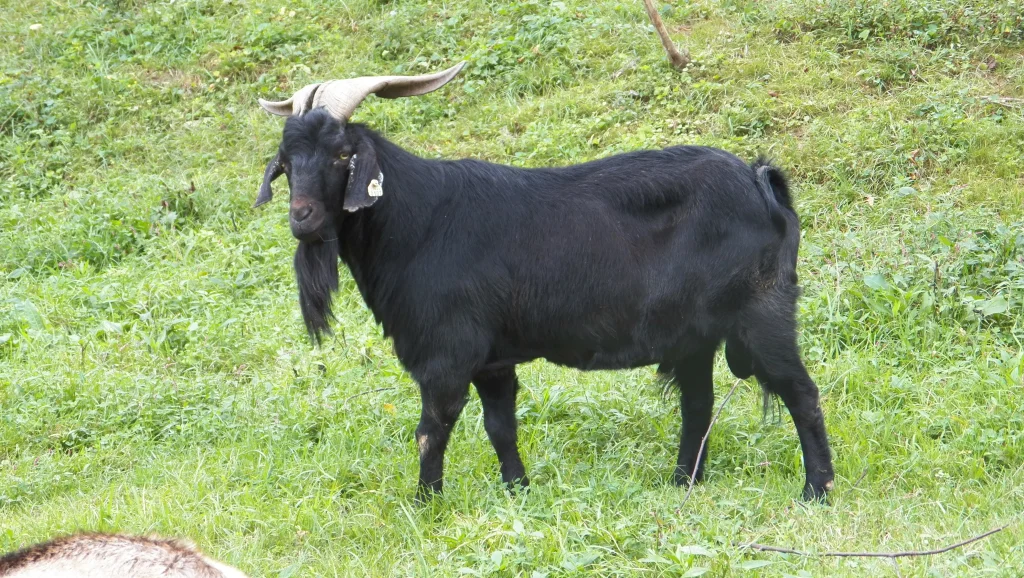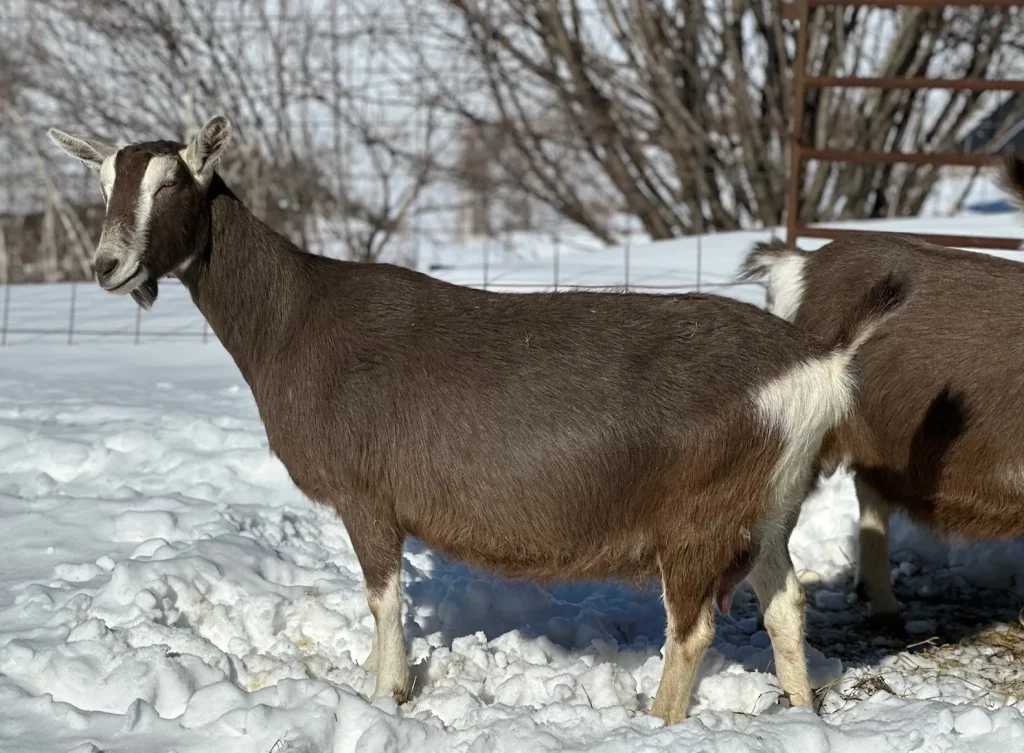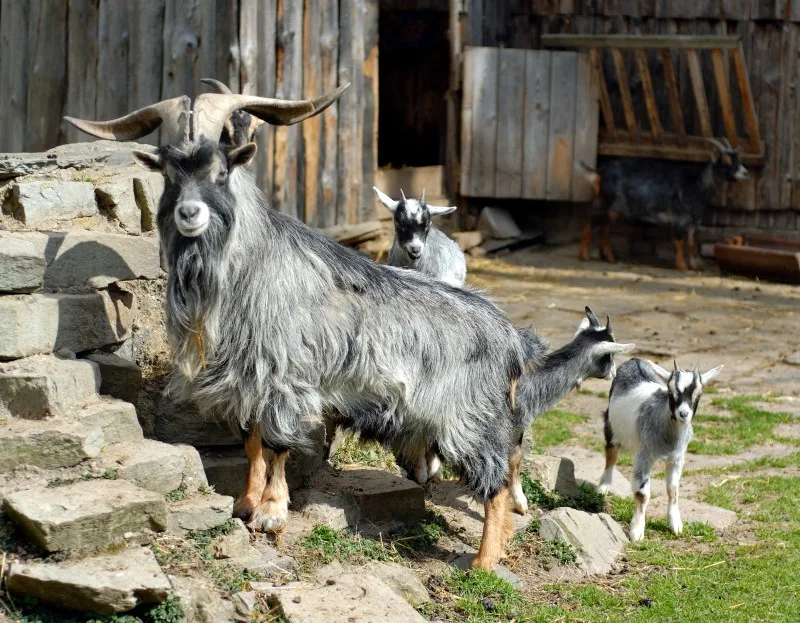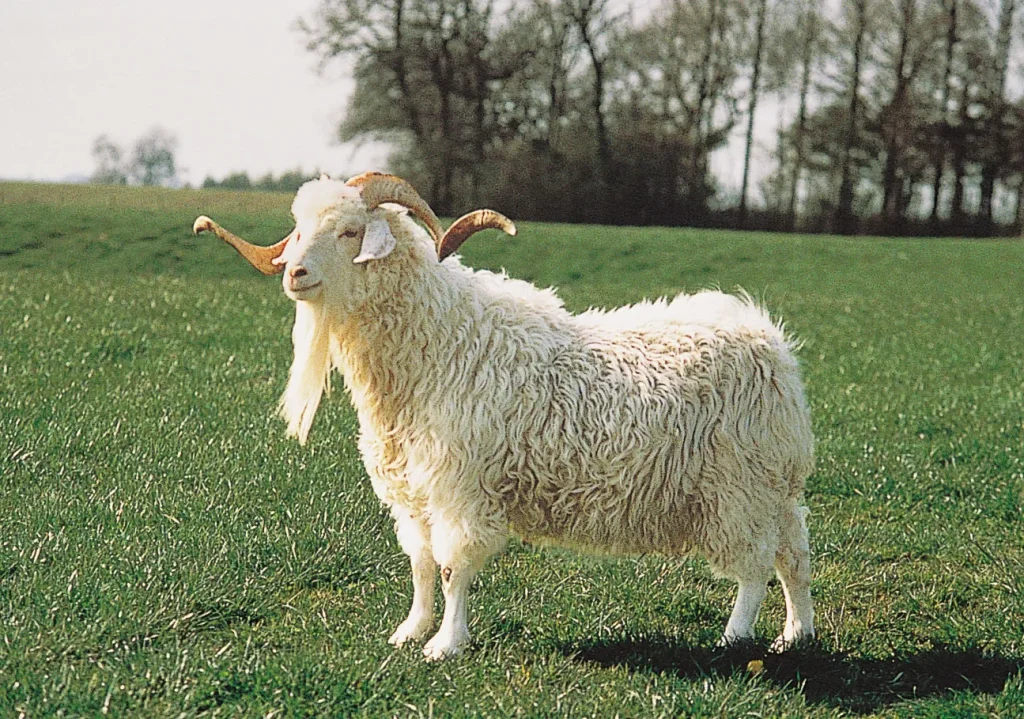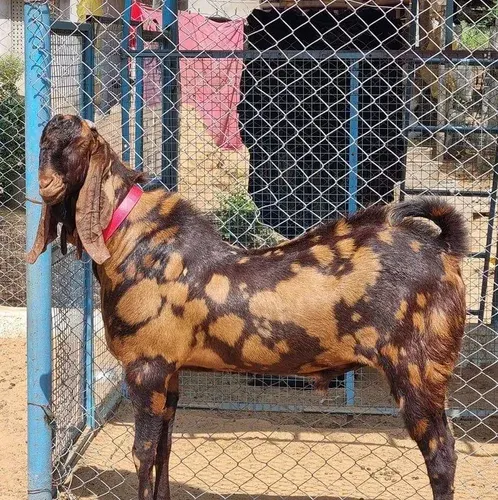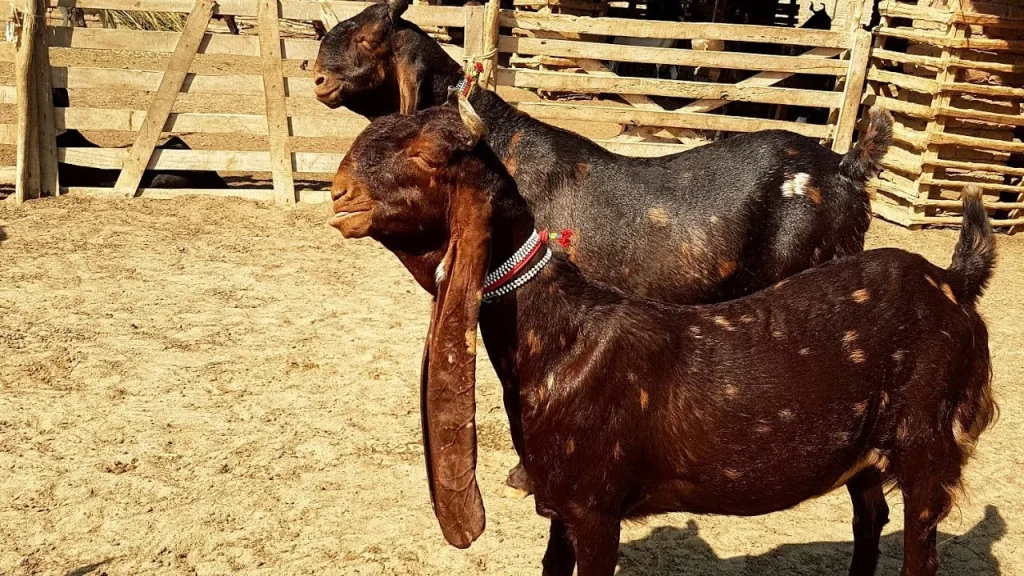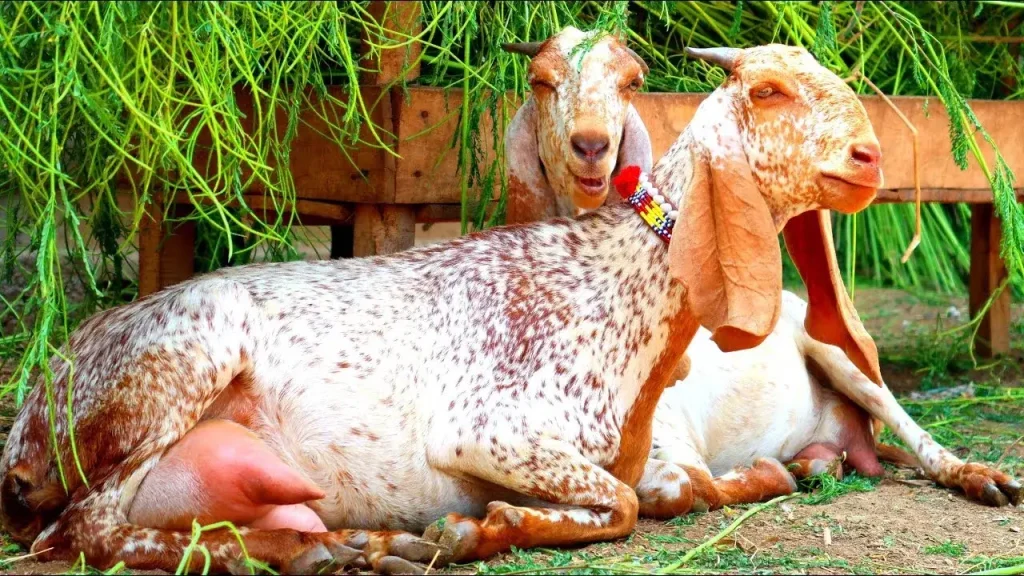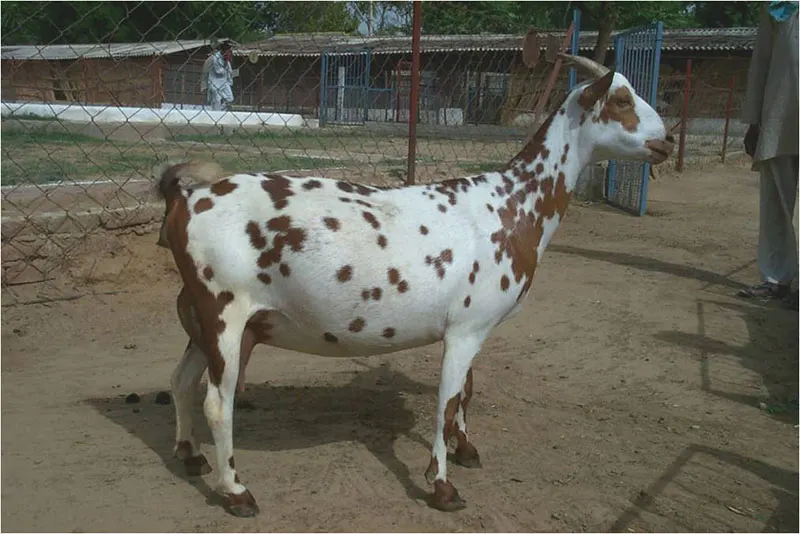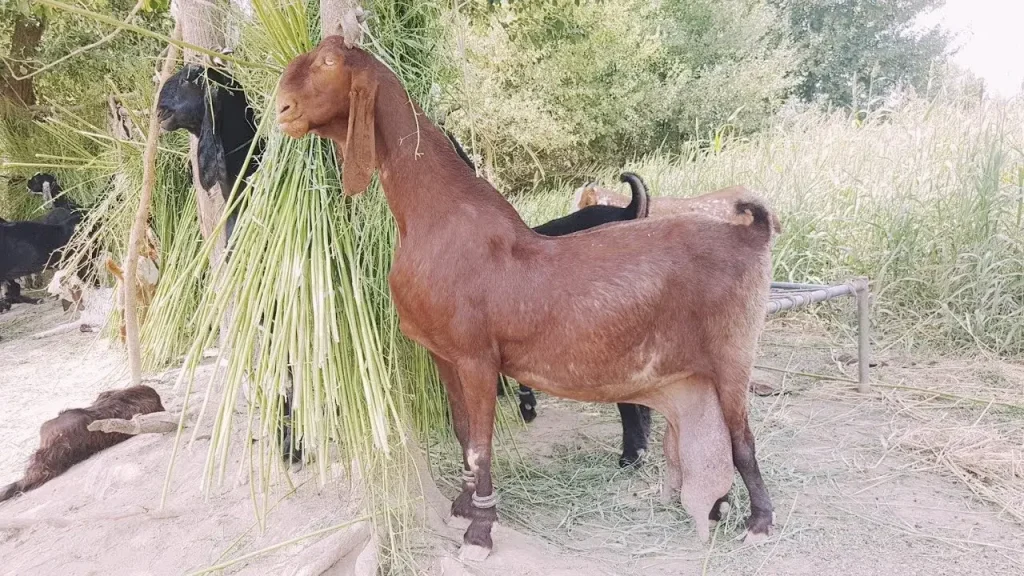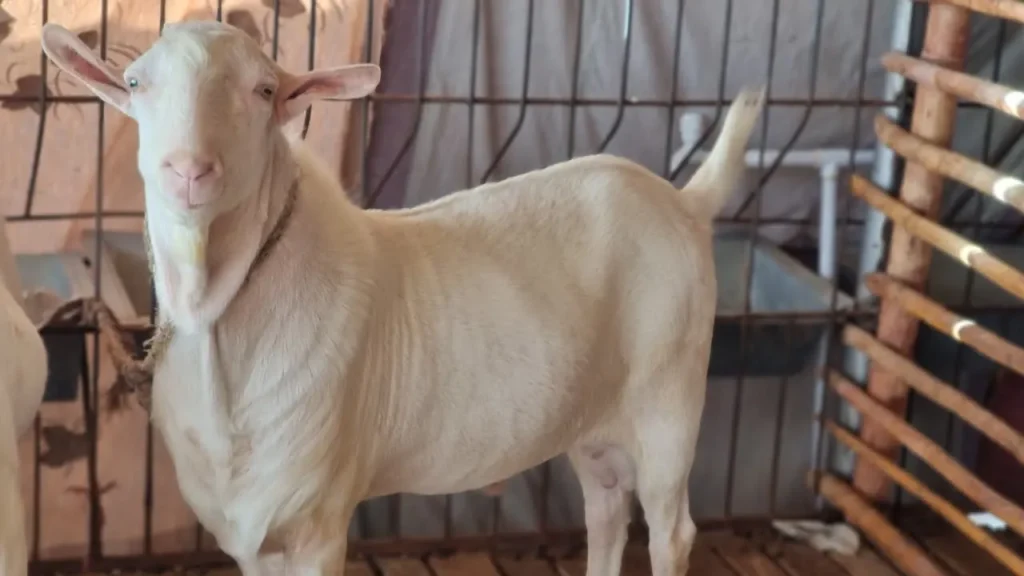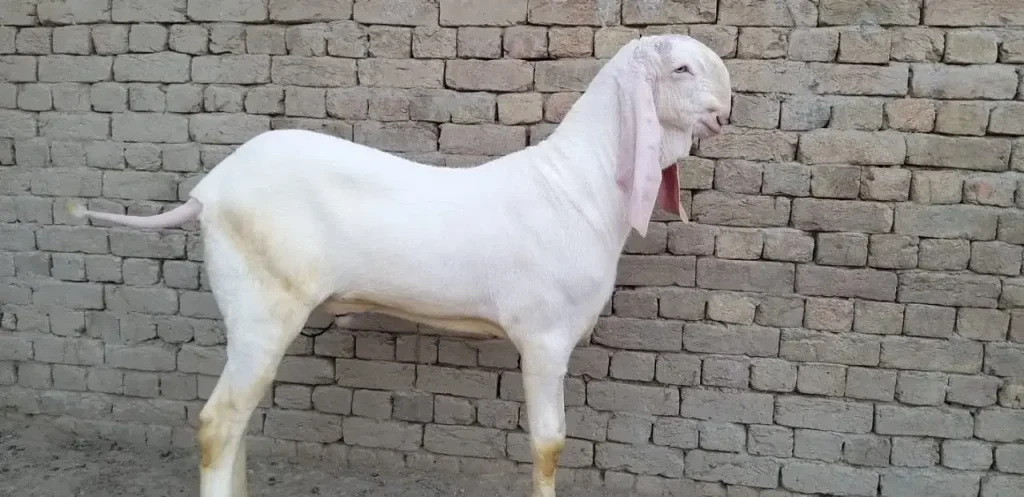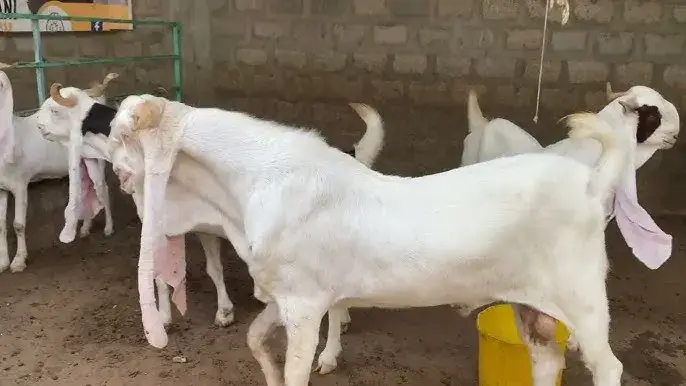🐐 Saanen Goat – The Gentle Giant of Dairy Goat Breeds
🌟 Introduction
The Saanen Goat is often referred to as the “Queen of Dairy Goats” — and for good reason. Known for their calm nature and impressive milk production, Saanen goats are an excellent choice for dairy producers, homesteaders, and community farms. Whether you’re just beginning your journey or have years of experience, the Saanen’s reliable temperament and high yield make them a favorite among inclusive and diverse farming setups.
📜 History and Origin
Originating from the scenic Saanen Valley in Switzerland, this breed has earned worldwide recognition for its dairy capabilities. Introduced globally in the late 1800s and early 1900s, Saanen goats quickly gained popularity for their adaptability and productivity. Today, they are one of the most widely raised dairy goat breeds across continents.
🧬 Physical Appearance
Saanen goats are large, elegant animals with a gentle presence. Their short, fine coats are always white or light cream, helping them reflect heat in sunny climates. These goats have upright ears, straight faces, and strong, proportionate bodies that support their excellent milk output.
Adult bucks can weigh over 180 pounds, while does typically range between 130 to 160 pounds. Despite their size, they are gentle, calm, and cooperative—qualities that make them well-suited for inclusive educational programs and family farms.
🥛 Milk Production
When it comes to dairy performance, Saanens are top-tier. A healthy Saanen doe can produce between 1 and 3 gallons of milk daily at peak lactation. Their milk is mild in flavor and contains approximately 3% butterfat—perfect for drinking, cooking, and crafting homemade cheeses, yogurt, or soaps.
Their extended lactation period and high volume output make them an excellent choice for both small farms and commercial dairy operations.
🐐 Temperament and Behavior
Saanen goats are famously calm, friendly, and sociable. These goats thrive in environments where they can interact with caregivers, visitors, and other animals. Their cooperative nature makes them easy to handle and suitable for people of all ages and abilities, including those participating in therapeutic and inclusive farming experiences.
They’re intelligent, responsive, and rarely aggressive, making them a trusted breed for schools, community gardens, and diverse homesteads.
🏡 Housing and Environment
Due to their light-colored coats, Saanens are more sensitive to direct sunlight and hot weather. In warm regions, it’s essential to provide shaded areas, fans, or misting systems to ensure their comfort and well-being. These goats prefer cooler climates but adapt well when proper care is given.
As active animals, they require spacious, secure environments to roam and explore. Clean shelters with good ventilation, dry bedding, and ample space will help them stay healthy and content.
🥗 Diet and Nutrition
To support their substantial milk production, Saanens need a balanced, nutrient-rich diet. This typically includes:
- High-quality hay (like alfalfa or clover)
- Fresh pasture (when available)
- Grain or dairy-specific supplements
- Clean, fresh water at all times
- Goat-safe mineral supplements
During peak lactation, additional protein and calcium help maintain health and milk volume. Occasional healthy treats like apple slices or carrots can also be offered.
🛡️ Health and Care
Saanens are generally hardy animals, but consistent care is essential:
- Hoof trimming every 4–6 weeks
- Routine vaccinations (such as CDT)
- Parasite control based on local conditions
- Regular grooming and wellness checks
Their light skin is more prone to sunburn, so providing protection in sunny climates is crucial to prevent discomfort or health issues.
👨👩👧👦 Family and Community Friendly
Saanen goats make wonderful additions to family farms, inclusive homesteads, and community-based agricultural projects. Their gentle disposition, predictable behavior, and ease of handling make them ideal for children, older adults, and individuals with varying levels of physical ability. These goats are not just productive—they’re also loving and loyal companions.
📈 Popularity and Common Uses
Saanens are widely raised for milk production, but they’re also popular in agricultural education, therapy programs, and sustainable living projects. Their milk is often used to produce:
- Drinking milk
- Cheese
- Yogurt
- Soap and lotions
With their strong dairy genetics, they are also frequently used in crossbreeding to improve milk yields in other breeds.
🌟 Fun Facts About Saanen Goats
- They are sometimes called the “Holstein of dairy goats” due to their high milk output.
- A single Saanen can produce over 2,000 pounds of milk annually.
- They are one of the calmest and easiest goat breeds to handle.
- Their friendly nature makes them great for petting zoos and therapy programs.
❓ Frequently Asked Questions
Q1: Can Saanen goats live in hot climates?
A: Yes, with proper shade, ventilation, and water, Saanens can thrive in warm climates, although they prefer cooler environments.
Q2: Are Saanen goats good for beginners?
A: Absolutely. Their gentle temperament and manageable care needs make them perfect for individuals or families new to goat keeping.
Q3: How much space does a Saanen goat need?
A: Each goat should ideally have access to 200–250 square feet of outdoor space, plus clean and dry indoor shelter.
Q4: Do they get along with other goat breeds?
A: Yes. Saanens are social and generally blend well with other goat breeds and livestock when introduced properly.
Q5: What makes their milk special?
A: Saanen milk is known for its mild flavor and excellent quality, making it ideal for cheese, yogurt, and soap making.
✅ Conclusion
The Saanen Goat is a remarkable example of how strength, gentleness, and productivity can coexist. Whether you’re running a dairy business, educating young learners, or seeking a peaceful companion animal, the Saanen has something valuable to offer. With their inclusive and approachable nature, Saanens bring both nourishment and joy to diverse farm communities around the world.

